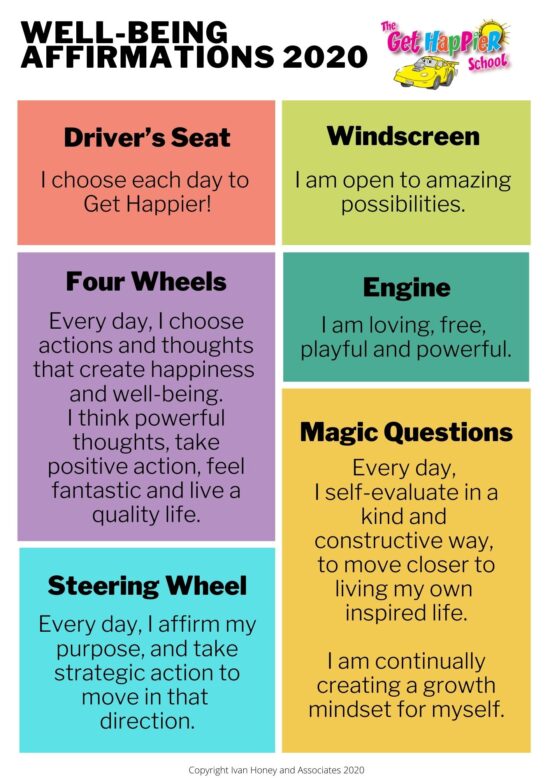Linking the Get Happier curriculum to Classroom Management at Glendore Public School

Scroll through this fabulous summary from Glendore Public School to see the clever adaptation 🙂 They use the workshop and pitstop metaphors for ‘working things out!’
STUDENT WELLBEING

During our weekly Happier School’s lessons, students learn about travelling on Open Roads or Dead End Roads.
OPEN ROADS
The Open Roads are connecting habits which are based on a mindset that focuses on controlling ourselves rather than controlling others. Open Roads help us to be happy and in control of our choices.
DEAD END ROADS
Dead End Roads are disconnecting habits which can be harmful when used for too long or too often. It’s natural for all people to find themselves choosing these habits when things don’t go to plan.

MAGIC QUESTIONS
When students find themselves travelling on Dead End Roads, they are encouraged to consider the following questions to assist them with moving back to an Open Road:
- What do you want?
- What are you doing?
- Is what you’re doing working?
- What are your options?
- What is your plan?
Students can also use the ‘Magic Tool Box Questions’ as a further strategy when things aren’t going as planned or perceived.

To assist with student choice regulation, all Teachers utilise the ‘What car are you driving’ system in their classroom/learning environment.

At times, students may be requested to attend Pit Stop and Workshop to resolve incidents and develop proactive plans to reduce further incidents. To ensure learning time is not impacted, Pit Stop and Workshop run at lunch and recess breaks.
PIT STOP
Students who attend ‘Pit Stop’ are there so teachers and executive staff can investigate the incident.
It is a time for students to talk to an adult about what happened and to discuss the incident and their feelings.
Witnesses are also asked to attend ‘Pit Stop’ so teachers know the whole incident.

WORKSHOP
Students who attend ‘Work Shop’ are there to reflect on the incident and work out what went wrong.
Students work with a teacher to make a plan with strategies to help them on the playground to deal with all situations.

